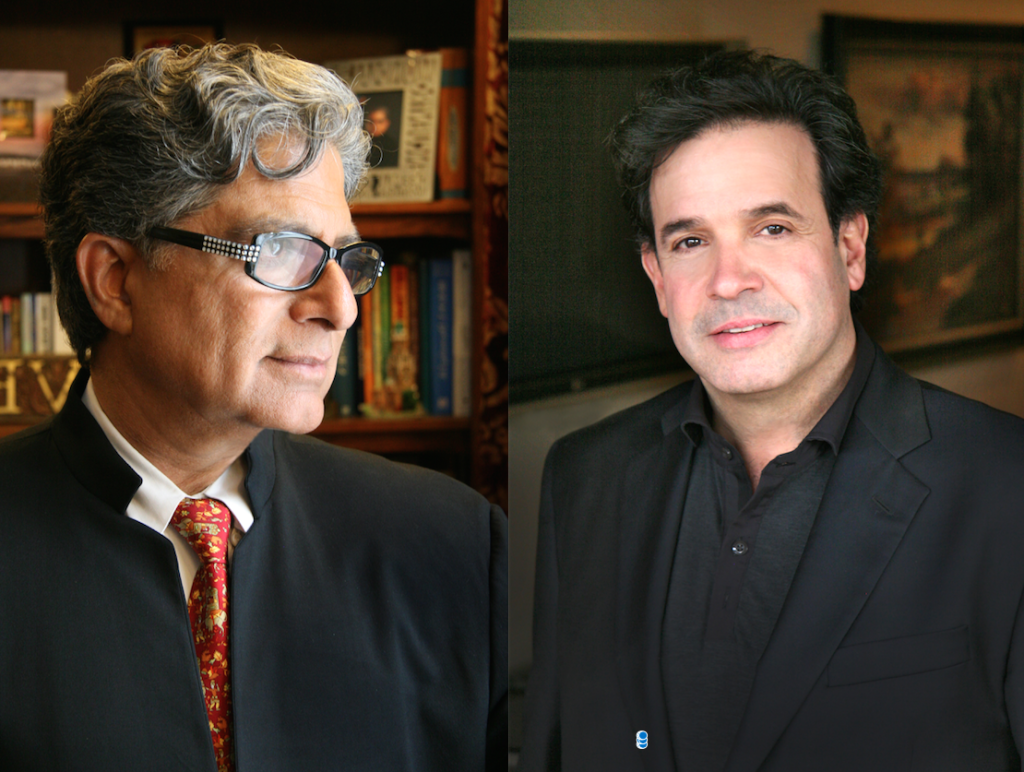Deepak Chopra, MD has announced that Dr. Rudolph Tanzi, Joel Primack and Nancy Abrams will receive the 2012 Spirit of Rustum Roy Award for their exemplary work that embodies the Chopra Foundation’s vision to help create a just, sustainable, healthy and peaceful world.
San Diego, CA (PRWEB) January 11, 2012
Deepak Chopra, MD, founder of The Chopra Foundation, recently announced the recipients of the 2012 Spirit of Rustum Roy Award: Dr. Rudolph Tanzi, Joel Primack and Nancy Abrams. The awards will be presented at the Third Annual International Sages and Scientists Symposium, held from March 3 to 5, 2012 at La Costa Resort and Spa in Carlsbad, CA.
“It is an honor and privilege to award these recipients for their commitment to a vision greater than themselves—the expansion of science into the field of consciousness,” said Dr. Chopra.
The Spirit of Rustum Roy Award originated in 2010 in tribute to Rustum Roy, a scientist and researcher for over sixty years and board member of The Chopra Foundation. The prize is given to those making major contributions to the scientific understanding of consciousness and helping to move humanity towards a just, sustainable, healthy and peaceful world.
Past recipients include Dr. Menas Kafatos, Fletcher Jones Endowed Professor in Computational Physics and Vice Chancellor for Special Projects, Chapman University; and Stuart Hameroff, MD, Professor at the University of Arizona, Associate Director at The Center for Consciousness Studies.
Dr. Rudolph Tanzi is the Joseph and Rose Kennedy Professor of Neurology at Harvard University, and Director of Genetics and Aging at Massachusetts General Hospital (MGH). Dr. Tanzi co-discovered three of the four known Alzheimer’s disease genes and is currently developing therapies to treat this devastating disease.
Dr. Tanzi has received numerous awards for his research, was named one of the “Harvard 100: Most Influential Alumni” and more recently the “Rock Star of Science” in GQ Magazine. He has co-authored over 400 research articles and the popular trade book “Decoding Darkness: The Search for the Genetic Causes of Alzheimer’s disease.”
Dr. Joel Primack is Distinguished Professor of Physics at the University of California, Santa Cruz, and the director of the University of California High-Performance AstroComputing Center. He has been one of the leaders in the creation of the modern theory of the universe and the formation and evolution of galaxies.
Dr. Primack has been active for forty years in bringing science into national policymaking; he created the Congressional Science and Technology Fellowship program and the program on Science and Human Rights of the American Association for the Advancement of Science.
Nancy Ellen Abrams is a writer, philosopher of science, singer/songwriter, and lawyer. She is the inventor of Scientific Mediation and has worked in science policy for the U.S Congress and the government of Sweden.
With a ringside seat to the modern cosmological revolution, she has worked with Primack to turn the modern scientific picture into a source of meaning and inspiration that could help to solidify the bonds of humankind. With Primack, she has co-authored two books: The View from the Center of the Universe (Riverhead, 2006) and The New Universe and the Human Future (Yale, 2011).
 By Deepak Chopra, MD, Rudolph E. Tanzi, PhD
By Deepak Chopra, MD, Rudolph E. Tanzi, PhD

